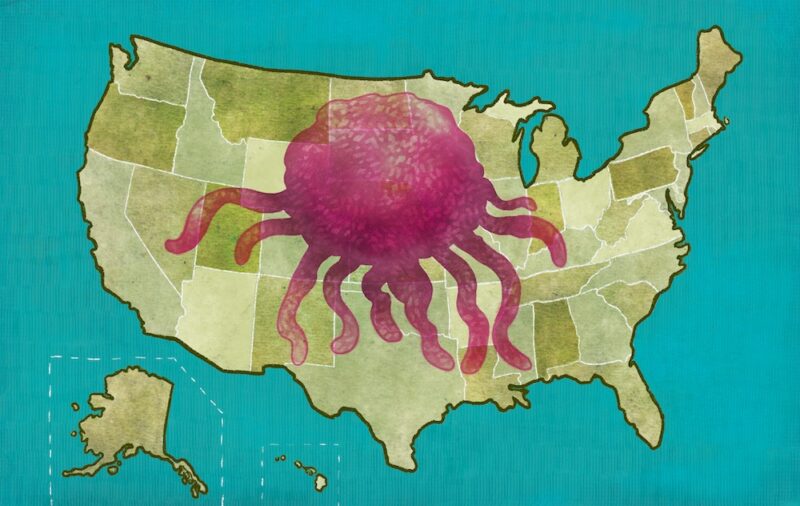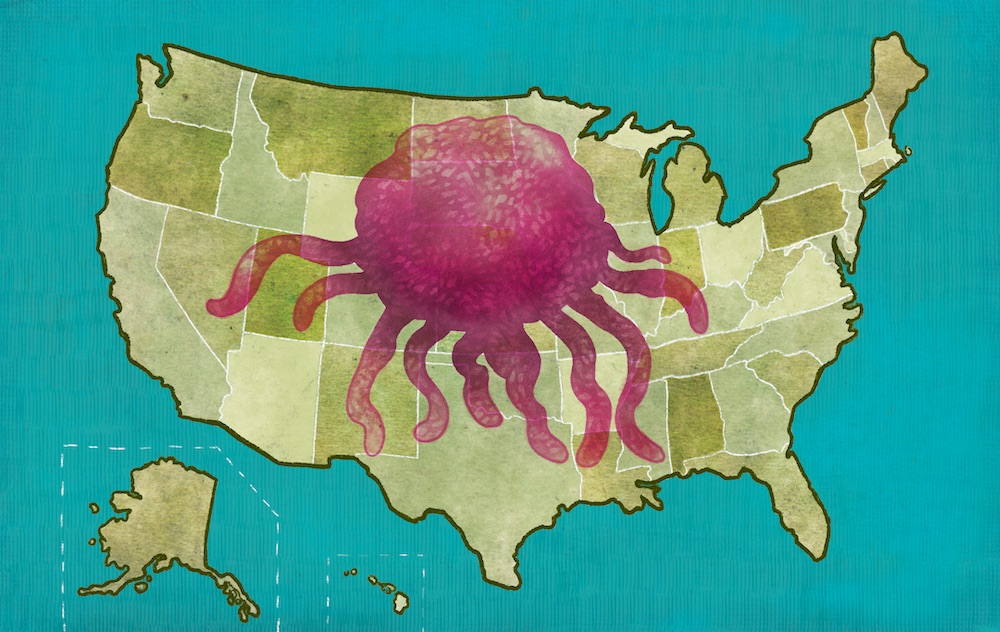The American Association for Cancer Research (AACR) annual Cancer Progress Report for 2020, published 23 September, portrays a mixed picture. On a positive note, the report features advances in cancer treatment and falls in cancer-related deaths; while on the negative side, it shows certain segments of the population shoulder a disproportionate burden of cancer and the impact that the Covid-19 pandemic has had on cancer research.
“During this challenging time, maintaining the momentum against cancer is more important than ever,” says Margaret Foti, the CEO of AACR, in a press release. “The COVID-19 pandemic has highlighted just how crucial the biomedical research community is to the health and safety of our country and indeed, the world. We urgently need strong, consistent federal support from the NIH and NCI so that we can continue to understand, prevent, treat, and ultimately cure cancer as well as all diseases that threaten human lives.”
The AACR Cancer Progress Report, now in its 10th edition, represents the cornerstone of AACR efforts to increase public understanding of progress against cancer, whilst advocating for increased federal funding. Advances against cancer, outlined by the report for period 1 August 2019 to 31st July 2020, include:
- FDA approval of 35 new treatments for cancer, including the first PARP-targeted therapeutic for use in prostate and pancreatic cancers, the first molecularly targeted agent approved for epithelioid sarcoma, and the first antibody-drug conjugate for triple-negative breast cancer.
- From 1991 to 2017 the US cancer death rate fell by 29% – a reduction estimated to be responsible for saving 2.9 million lives.
- Cigarette smoking rates among US adults have fallen to less than 14% of the population, down from 42% in 1965. The reduction has been attributed to public education and policy initiatives.
The report includes a special feature on Covid-19, outlining the challenges the pandemic has created in the field of cancer science and medicine including:
- Falls in screening. Data from electronic medical records of 190 hospitals across 23 US states show the number of screening tests for early detection of cervical, breast, and colon cancers conducted in the US fell by 85% or more following the first case of Covid-19.
- Delays to treatment. Data shows 79% of patients actively undergoing cancer treatment had to delay some aspect of their care as a result of the pandemic.
- Projections of increased deaths. Delays in cancer screenings and treatment are projected to lead to more than 10,000 additional deaths from breast and colorectal cancers over the next decade.
- Declines in patients enrolled in clinical trials. There was a 74% decline in the number of new patients enrolling in clinical trials during the first two weeks of May 2020 compared with the same period last year. Enrolment continues to remain 30% lower than before the pandemic.
- The annual report also highlights that cancer disparities continue to affect racial and ethnic minority patients, citing the example of non-Hispanic Black children and adolescents with cancer who are 50% more likely to die from cancer than non-Hispanic White children and adolescents with cancer.
Such data is supported by the first-ever report from the AACR “Cancer Disparities Progress Report”, published 16th September 2020, with the aim of achieving health equity for all people regardless of race, ethnicity, sexual orientation or socioeconomic status. “This inaugural and historic progress report will provide the world with a comprehensive baseline understanding of our progress toward recognising and eliminating cancer health disparities from the standpoint of biological factors, clinical management, population science, public policy, and workforce diversity,” explains John D. Carpten, chair of the AACR Cancer Disparities Progress Report 2020 Steering Committee.
Findings of the report that serve as a call to action for policy makers and other stakeholders to eradicate social injustice include:
- African Americans having had the highest overall cancer death rate of any racial or ethnic group for more than 40 years.
- Blacks having higher incidence of death rates for many of the most common cancer types, including breast, colorectal, lung and prostate cancers.
- Latinos having lower overall cancer incidence and death rates than whites, but higher rates of liver, stomach and cervical cancer and childhood leukaemia.
- American Indians and Alaska Natives having lower overall cancer incidence and death rates than whites, but higher rates of liver cancer and higher mortality from stomach and kidney cancers.
- Bisexual women being 70% more likely to be diagnosed with cancer than heterosexual women.
- Many of the factors driving Covid-19 disparities overlapping with the factors contributing to cancer health disparities.
- Racial and ethnic minorities being severely underrepresented in clinical trials, and a lack of understanding of how cancer develops in this group.
While much work still undoubtedly needs to be done, the report revealed progress in reducing disparities, with the difference in overall cancer death rates for African Americans compared with whites declining from 33% higher in 1990 to 14% higher in 2016.
Illustration by Sara Corsi












